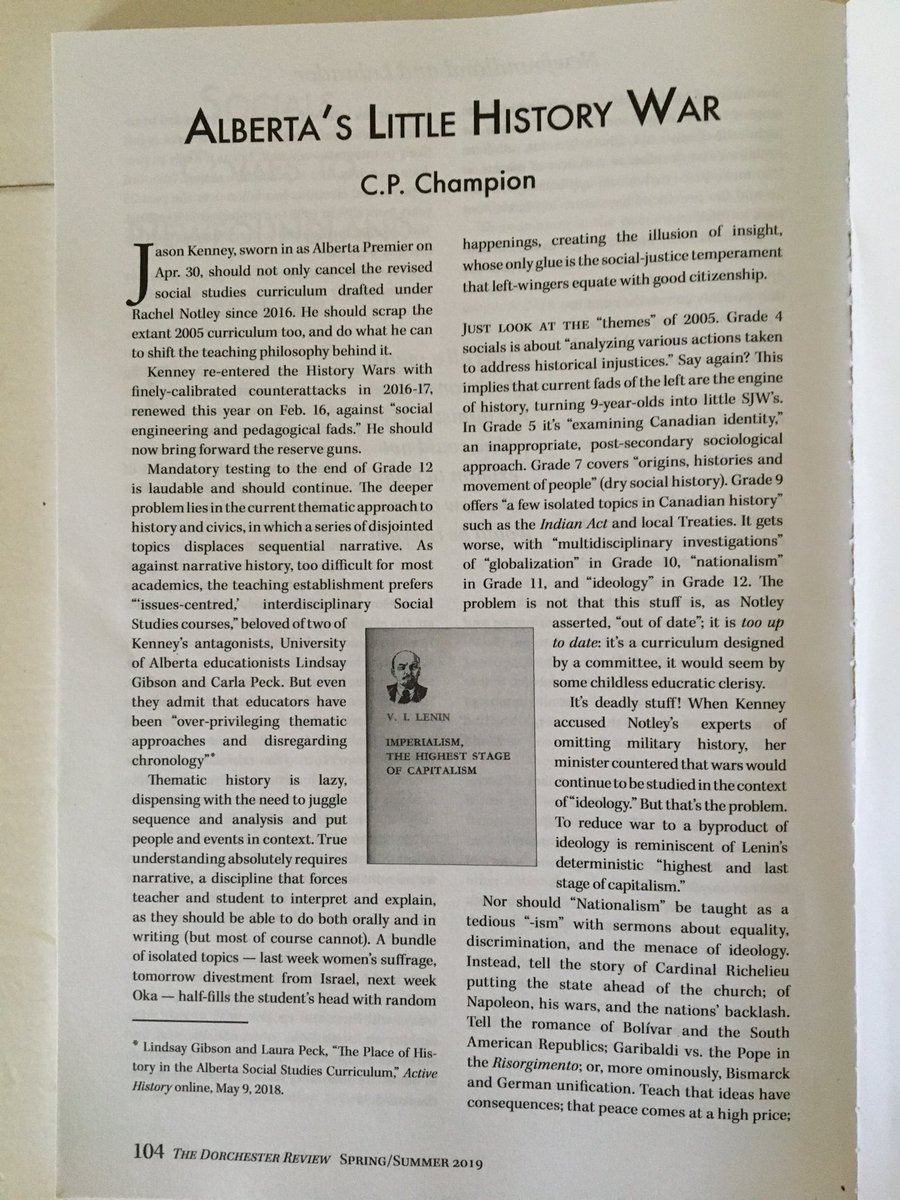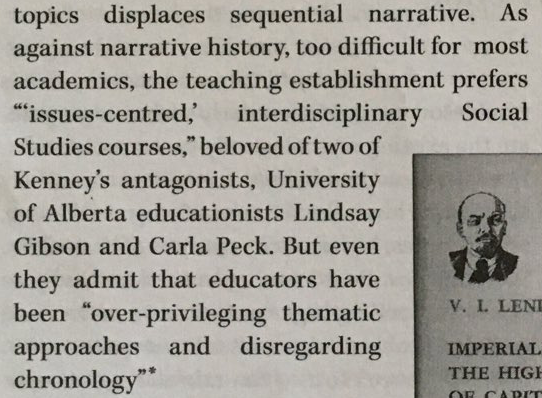
One thing about the #abed curriculum that is not being discussed enough is that the Knowledge-Understanding-Procedures categories don't make sense and there's a total absence of concepts. 

For example, it differentiates between knowledge and understanding, but I have yet to hear a coherent explanation of the difference between the two, or a justifiable reason for separating them.
As discussed by @ArthurJChapman in his new book, history educators typically organize historical knowledge and understanding into first-order (substantive knowledge i.e. know that) and second-order (procedural, disciplinary or metahistorical knowledge i.e. know how). 

The #abed curriculum includes many factual propositions, but very little focus on substantive social studies concepts that are important for students to deepen their understanding of throughout their K-12 education (e.g. democracy, rights, imperialism, technology).
The #abed social studies curriculum doesn't include any focus on second-order concepts in history (time, continuity & change, cause & consequence, significance, evidence, interpretations, perspectives).
First-order concepts don't make sense without second-order concepts.
First-order concepts don't make sense without second-order concepts.
The skills and procedures that are included are generic and isolated (e.g. create a map, recognize and explain the origin of, describe some encounters between) that don't build on each other within each grade or from grade to grade.
The skills and procedures are explicitly connected to content and are not designed to be applied to different content/concepts throughout and across curriculum. 

The descriptions in the Knowledge and Understanding categories are incoherent & interchangeable. They include topics (migrations of people to Britain), factual propositions (Largest land empire in human history), & generic statements (people migrate for different reasons). 

The Knowledge category includes topics and propositions, and the Understanding category includes topics, propositions, and general statements.
The wording between the different categories is inconsistent, as is the capitalization (a minor concern).
The wording between the different categories is inconsistent, as is the capitalization (a minor concern).
Not only is the #abed social studies curriculum problematic for all the reasons highlighted by @cpeck3 & many others over the past few days, it is built on a deeply flawed and conceptually confused foundation.
Like everything the @UCPCaucus and @jkenney do, the #abed social studies curriculum is ideological and incompetent.
It's pretty clear that whoever wrote the curriculum had no idea what they were doing.
#AmateurHour
It's pretty clear that whoever wrote the curriculum had no idea what they were doing.
#AmateurHour
Who would've guessed that hiring ideologues with little to no experience writing curriculum or in K-12 education would've produced curriculum like this?
It's deeply ironic that a government focused on creating a knowledge-rich curriculum hired consultants with no knowledge.
It's deeply ironic that a government focused on creating a knowledge-rich curriculum hired consultants with no knowledge.
There's one thing I'd like to mention that may not be popular.
The conceptual confusion of knowledge-understanding-procedures in the #abed curriculum dates back to the @abndpcaucus curriculum revision.
The conceptual confusion of knowledge-understanding-procedures in the #abed curriculum dates back to the @abndpcaucus curriculum revision.
I discussed this #abed ministry officials numerous times in my work as a member of the SS curriculum working group. It ended up being one of several reasons why I resigned from the group.
I apologize to @colettemondor @GWozny @DanScratch03 @findog99 @Haroldnuk @beerdman
& others for dredging up some of the same arguments from the glory days of the SS Working group.
& others for dredging up some of the same arguments from the glory days of the SS Working group.
• • •
Missing some Tweet in this thread? You can try to
force a refresh








